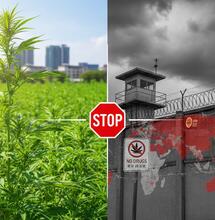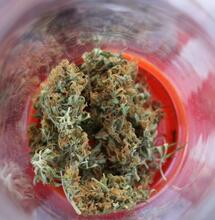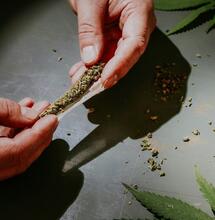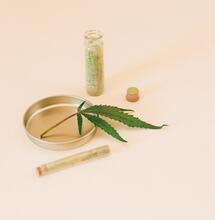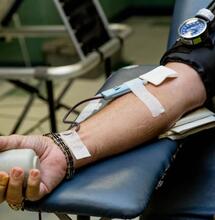What Do Doctors Think About Medicinal Cannabis?
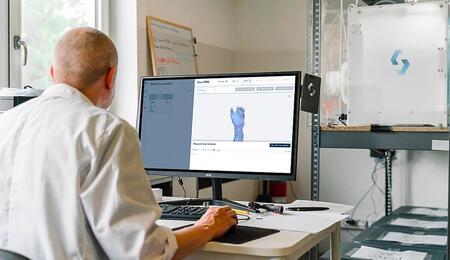
The sad reality is that a good fraction of medical professionals are in the dark about the therapeutic uses of cannabis. You're actually fortunate if your physician has an in-depth knowledge of Cannabis and is giving you valuable advice on how to use it for your condition. Not all doctors have those skills. And who can blame them? Most did not study the endocannabinoid system, cannabinoids, or cannabis medicines in medical school. According to some research, a small percentage of medical professionals still do not even distinguish the difference between different cannabinoids such as THC and CBD. And here I am, imagining a future where we have Cannabis clinics run by medical professionals who are remarkable herb practitioners.
The medical community is clearly supporting the use of marijuana as a potential treatment option for various health problems. Many doctors prescribe medical cannabis to their patients, although even they sometimes do not know what the outcomes of the therapy will be. But there lies the great responsibility of the medical profession. Doctors must follow up on their patients and adapt the treatment when something is off. Patients need to talk freely with their doctors and ask about anything that bothers them or becomes a source of concern.
When it comes to Cannabis, the first thing your primary care doctor will ask themselves is whether Cannabis is safe to prescribe. Will it work better than other prescription options available for your condition? For example, if the issue is chronic pain, it's logical to try medicinal marijuana as an alternative. Anyway, your doctor might not be so sure about other medical conditions. They could have been more confident. They could have had more insights if medical marijuana research hadn't been so rigidly restricted for decades in the U.S. But that's about it. We haven't invented time machines yet. We cannot turn back time and make things better than they are.
Medical professionals will take into account a lot of safety concerns when they consider prescribing medical marijuana. Below is a list of some of those concerns:
- If the patient takes other drugs, CBD may interact with those other medications, and there could be side effects. This may discourage physicians from recommending or prescribing CBD.
- Marijuana is ruled out if a psychotic disorder is in question.
- They will advise patients with a history of heart health problems not to use THC, particularly not to smoke.
- Approach with extreme caution if the patient has a personal or family history of psychosis, substance abuse, or cardiac arrhythmias.
- Doctors will not advise smoking if the patient has chronic bronchitis or asthma.
- They will consider the list of eligible conditions for medical marijuana valid within the state.
- If the therapy is going to be Cannabis, they will still consider recommending delivery methods other than smoking.
- They will warn of possible cognitive impairment, including impact on short-term memory.
- Addiction may become a subject of discussion.
- Pregnant women, lactating patients, teenagers, and young people are not recommended to consume Cannabis.
So, those would be some general guidelines that your primary care physician is very likely to follow.
Doctor's Advice on Consumption Methods
Medical professionals will weigh the pros and cons of each delivery method. But the philosophy at the heart of anything they prescribe may sound familiar: to go low and slow with whatever the prescribed product is.
The "low and slow" treatment strategy is safe territory for the medical profession. It would extend to most conditions, including those like chronic pain, where success is imminent that medical marijuana can help.
Caution with dosing is necessary, especially with products such as highly concentrated oils and gummies. With edibles, it's often difficult to determine the optimal dosage as each person reacts in their own way to CBD or THC.
Edibles are the better option for long-term effects. On the other hand, inhalation from smoking or vaping dried flower is better if the desired outcome is rapid symptom relief. But your doctor will likely warn of lung irritation and the need to dose frequently.
The in-between solution would be tincturing. The liquid extracts, usually dispensed sublingually, take about half an hour to kick in and have an average duration of around four hours, a more prolonged effect than smoking but shorter from edibles.
Other Advice and Guidelines
Most doctors who prescribe medicinal marijuana will not want their patients to get high. The demand itself may come from the patients themselves either because of fears they might not be 100% functional for work and family due to impairment or brain fog or because they simply don't like the idea of being high.
The doses for medical purposes are often lower than for recreational products and are to be administered at specific time intervals. Doctors recommend cannabis cultivars that are more appropriate for medical use. We do live in the age of the regulated market, with plenty of medicinal cannabis strains to choose from. Highly sedating strains with extremely high content of THC are generally avoided.







